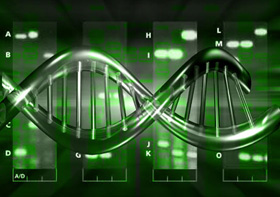Experimental transplantation of human and animal DNA
A group of experts from the British Academy of Medical Sciences announced that they began to conduct a new study evaluating the experimental transplantation of human DNA into animals as well as determining the boundaries of this controversial scientific experiment.
 Scientists want the people to 'be aware of what is happening in the laboratory before being carried out'. Robin Lovell-Badge cytology specialist, the British National Institute of Medical Research, said, 'This is for some people who sound horrible but worth doing to find a cure for diseases. even more scary '.
Scientists want the people to 'be aware of what is happening in the laboratory before being carried out'. Robin Lovell-Badge cytology specialist, the British National Institute of Medical Research, said, 'This is for some people who sound horrible but worth doing to find a cure for diseases. even more scary '.
This experiment will be conducted in two main directions, modifying animal DNA by transplanting human DNA or replacing a piece of animal DNA with a passage from humans.
This method has been done with mouse human gene transplantation experiments to create a down-disease disease model to study the development and find treatment.
Earlier, in early 2008, the British government allowed the use of animal eggs to create human stem cells for the purpose of healing. However, many scientists have objected to the decision when it was thought that this could result in uncontrollable 'monsters' or uncontrolled fetuses.
- American scientists figured out how to recreate the dead man's arms and legs
- 5 technological revolutions that help people live better
- What is organ transplantation?
- Goat sperm transplantation to humans: The past and future of heterosexual transplantation
- The truth is hard to believe: A pair of experimental mice can be as expensive as a billion-dollar car
- Cloning pigs without antibodies for human organ transplantation
- China tightens management of human organ transplantation
- Steps for transplanting the human brain
- Vietnam is about to match the face, intestine and uterus
- The robot can now cultivate human organs quickly
- Things to know about kidney transplants
- American successfully created embryo hybrid sheep - human
 Why do potatoes have eyes?
Why do potatoes have eyes? 'Tragedy' the world's largest carnivorous life: Death becomes ... public toilet
'Tragedy' the world's largest carnivorous life: Death becomes ... public toilet Tomatoes were once considered 'poisonous' for 200 years
Tomatoes were once considered 'poisonous' for 200 years Detecting microscopic parasites on human face
Detecting microscopic parasites on human face Scientists find traces of modification in DNA: Are humans products of 'design'?
Scientists find traces of modification in DNA: Are humans products of 'design'?  A surprising kitchen tool helps preserve endangered species
A surprising kitchen tool helps preserve endangered species  Discovery of strange activity of ancient virus DNA in the human body
Discovery of strange activity of ancient virus DNA in the human body  Japan announces new breakthrough to help destroy many types of cancer
Japan announces new breakthrough to help destroy many types of cancer  Protein discovered as a precursor to cancer vaccine
Protein discovered as a precursor to cancer vaccine  The relationship between ancient viral DNA and mental illness
The relationship between ancient viral DNA and mental illness 